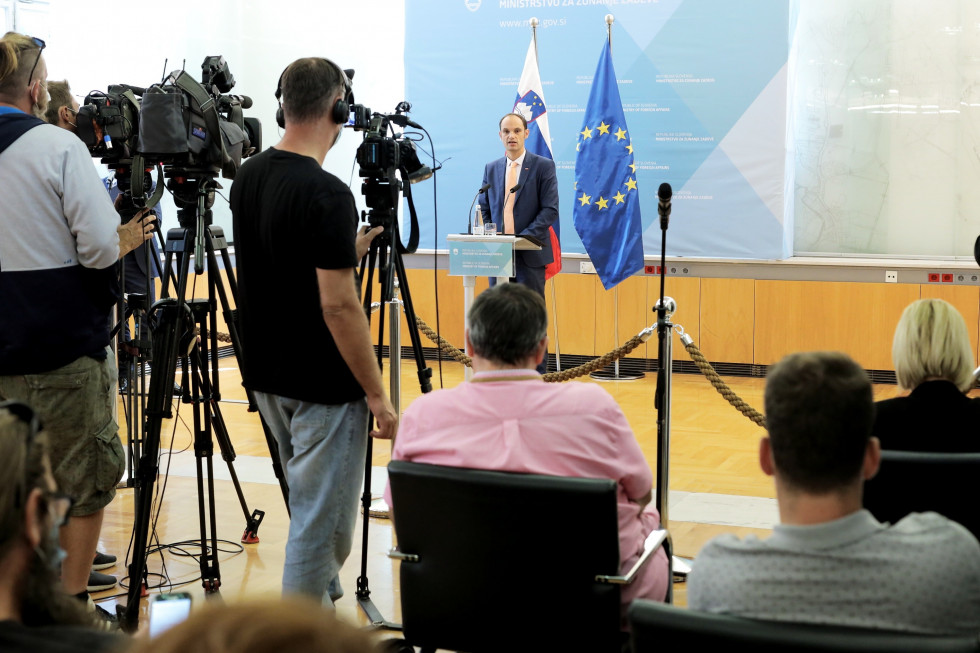Vision of the Slovenia’s foreign policy
He stressed that Slovenia will implement the foreign policy strategy adopted in 2015 and build its reputation as a safe, prosperous and world-wide respected country.
The Minister noted in his introduction that in the last three and a half months the Ministry had organised as many as 17 bilateral visits. Slovenia has hosted the German, American and French foreign ministers and three times the Italian foreign minister. In the coming months, we would like to intensify meetings at the level of foreign ministers, secretaries of state and directors-general with the countries presiding over the EU Council in the trio and with France, which will take over the presidency after Slovenia. All bilateral meetings evidence the intense activity of Slovenian diplomacy in recent years.
Regarding the course of the intensive preparations for Slovenia’s presidency of the Council of the European Union, Minister Logar said that our priorities and the programme will be presented at the beginning of next year, including, obviously, to our foreign partners. Minister Logar further noted that the Ministry was in regular contact with EU High Representative for Foreign Affairs and Security Policy Josep Borrell and with the currently presiding country Germany and with France, which will assume the presidency after Slovenia. Our presidency programmes have largely been coordinated and we wish the transition between the two Member States to be as smooth as possible, the Minister emphasised.
The main guideline and a clear starting point for the work of our diplomats is reflected in the title of the foreign policy strategy: "Slovenia – a safe, successful and world-wide respected country". At a recent consultation with Slovenian diplomats, the levels of achieving the goals set out in both the strategy and the declaration on foreign policy were examined in detail. The Minister said that there was a high level of consensus on key new priorities in the coming period: a self-confident and significantly more active foreign policy, with an emphasis on strengthened transatlantic relations and integration with the countries of Central Europe. Both transatlantic relations and relations with the countries of Central Europe have been among the possibilities in the past decade.
Minister Logar announced that he would host the foreign ministers of Austria, the Czech Republic, Slovakia and Hungary next week, to meet for the third time in the Central 5 format. This is a new informal framework for meetings of countries that share similar views on certain issues. It was Minister Logar who named the group C5. The meeting will particularly focus on a consultation on the coordination of measures to contain the COVID-19 epidemic. Close contacts with neighbouring countries and other countries in the region make it possible to adapt measures that have not yet been harmonised at the EU level. The small-scale meeting will also be useful for consulting on current foreign policy issues, such as developments in the Mediterranean and the situation in Belarus and Libya, which will also be on the agenda of the Foreign Affairs Council in Brussels at the end of the month.
From the point of view of Slovenia’s position in foreign policy relations, Minister Logar also mentioned Slovenia’s position among the Mediterranean countries. The informal Med7 Group can also be an effective tool for achieving our goals and interests in the EU, as Slovenia has, in addition to its distinct Central European character, also a Mediterranean one. In this context, the Minister announced enhanced contacts with foreign ministers of other Mediterranean countries.


